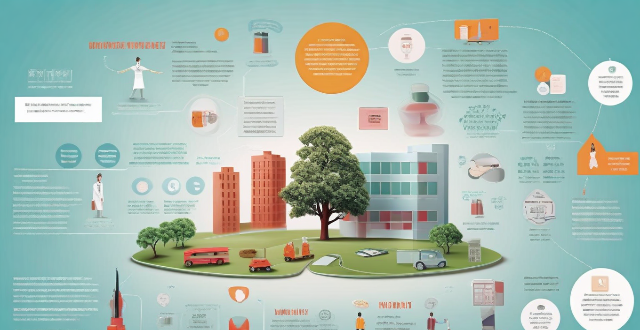Research and development (R&D) play a vital role in advancing global health security by improving disease detection, prevention, control measures, strengthening health systems, driving innovation, addressing antimicrobial resistance, preparing for future pandemics, and promoting equity and accessibility. R&D leads to the development of advanced surveillance systems, diagnostic tools, vaccines, medications, public health interventions, health infrastructure, technology, capacity building, cross-disciplinary approaches, open science, economic growth, sustainable development, novel antimicrobials, stewardship programs, risk assessment, pan-sectoral approaches, universal health coverage, and global health initiatives.

The Importance of Research and Development in Enhancing Global Health Security
Research and development (R&D) play a pivotal role in advancing global health security. This crucial process involves the creation of new knowledge, products, services, and processes to improve public health outcomes. Here are some key points highlighting the significance of R&D in this context:
Improving Disease Detection and Response
- Early Warning Systems: R&D can lead to the development of advanced surveillance systems that detect disease outbreaks earlier, allowing for a more rapid response.
- Diagnostic Tools: Innovations in diagnostics can help identify diseases quickly and accurately, enabling timely interventions.
Enhancing Prevention and Control Measures
- Vaccines and Medications: Research fosters the creation of new vaccines and treatments, reducing the incidence and impact of infectious diseases.
- Public Health Interventions: R&D supports the design and implementation of effective health policies and programs aimed at prevention.
Strengthening Health Systems
- Infrastructure and Technology: Investments in R&D contribute to building resilient health infrastructures and adopting cutting-edge health technologies.
- Capacity Building: Training and education initiatives stemming from R&D efforts enhance the skills of healthcare workers globally.
Driving Innovation and Collaboration
- Cross-disciplinary Approaches: R&D encourages collaboration across different fields, leading to integrated solutions for complex health challenges.
- Open Science: Sharing data and findings promotes international cooperation and accelerates progress in global health security.
Economic Benefits and Sustainable Development
- Economic Growth: Healthy populations are fundamental for economic productivity; thus, R&D in health contributes to overall economic growth.
- Achieving SDGs: Research supports the achievement of Sustainable Development Goals, particularly those related to health and well-being.
Addressing Antimicrobial Resistance
- Novel Antimicrobials: Continuous R&D is essential for developing new antibiotics and alternative treatments to combat AMR.
- Stewardship Programs: Research informs effective antimicrobial stewardship programs that preserve the effectiveness of current treatments.
Preparing for Future Pandemics
- Risk Assessment: Studies help assess potential threats and vulnerabilities, guiding preparedness planning.
- Pan-sectoral Approaches: R&D promotes collaboration between human, animal, and environmental health sectors to prevent zoonotic diseases.
Promoting Equity and Accessibility
- Universal Health Coverage: Research aids in designing strategies that expand access to quality healthcare for all individuals.
- Global Health Initiatives: R&D-driven initiatives aim to bridge health disparities and reach underserved populations.
In conclusion, research and development are integral to enhancing global health security by improving detection, prevention, treatment, and overall resilience against health threats. They pave the way for innovation, collaboration, economic stability, and equity in health care access—all critical components of a robust global health security system.